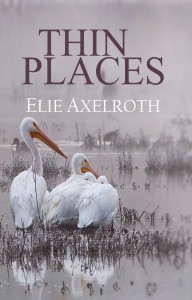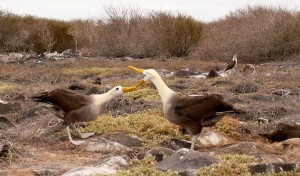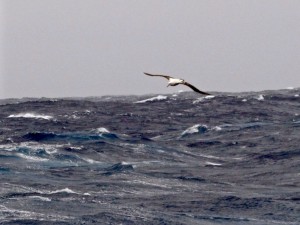 The seeds of my novel, Thin Places, began on a kayak trip back east with my graduate school buddy, Cynthia. We hired a guide to shepherd us along the coast of Maine for a couple of days. The sky was bright blue, but it was windy and if you stopped rowing to take a breather, you quickly lost ground. I spent a lot of time muttering under my breath, wishing I’d spent more time making friends with those rowing machines in the gym. We stayed in B&B’s at night, and ate homemade scones with blueberry jam for breakfast. The dining room table was laid out with lace doilies and a delicate flowery teapot. I remember the proprietors were two elderly sisters of Maine stock. They were generous, but reserved, in a way that might seem standoffish in a place like California or Charleston. For dinner, we sat at long picnic tables near the edge of the pier, and feasted on lobster and sour dough bread.
The seeds of my novel, Thin Places, began on a kayak trip back east with my graduate school buddy, Cynthia. We hired a guide to shepherd us along the coast of Maine for a couple of days. The sky was bright blue, but it was windy and if you stopped rowing to take a breather, you quickly lost ground. I spent a lot of time muttering under my breath, wishing I’d spent more time making friends with those rowing machines in the gym. We stayed in B&B’s at night, and ate homemade scones with blueberry jam for breakfast. The dining room table was laid out with lace doilies and a delicate flowery teapot. I remember the proprietors were two elderly sisters of Maine stock. They were generous, but reserved, in a way that might seem standoffish in a place like California or Charleston. For dinner, we sat at long picnic tables near the edge of the pier, and feasted on lobster and sour dough bread.
The next morning before the wind came up, we tooled around in open water, watching lobster trawlers and skiffs bouncing off the waves and birds soaring overhead. Our guide asked if we knew what the word pelagic meant. Being a wordsmith, I thought I should have known, but I didn’t. “Ocean-loving,” he said. “Albatross, for example, roam thousands of miles out to sea. They only come ashore to breed.”
“You mean they never land?” I asked. “How is that possible?”
Our guide shrugged, because whatever explanation scientists might concoct, it’s no less a mystery.
And thus, began my love affair with the albatross.
The Wandering Albatross or genus Diomedea is the largest of the albatross, an enormous bird with a wingspan of nine feet. Their wings are narrow, making it seem unlikely they could follow ships for days on end, hardly flapping at all. But they’re masters of using wind and thermals. I’ve seen Wandering and Black-Browed Albatross in the Antarctic skimming along the waves, no matter the wind was blowing at 50 miles an hour. Some years ago, on a trip to the Galapagos, my kids and I sat among scrub brush and black lava rock, mesmerized by a pair of Waved Albatross. They mate for life, and after a year at sea, they reconnect with their partners, bowing and clacking bills and squawking in what looks like a comical dance. They didn’t seem to mind our presence, but it felt as if we were intruding on an intimate reunion. (Here’s a video from National Geographic, Wings of the Albatross.)

Waved Albatross bowing
Years later, that kayak trip and my encounters with pelagic birds insinuated themselves into my consciousness–and the book. There are scenes of hang gliding and dreams of pelicans and the main character’s name is Skye. Because her mother knew she’d need to fly away.
Thin Places. Available soon in print and your favorite e-reader.

Elie:
I love your writing and can hardly wait for your first book to be available.
Just one of your fans!
Susan
You brought back memories of the fabulous birds seen while crossing the seas. I now have a new word for the day!
Yes, and isn’t that a wonderful photo from Carolina!
I can’t wait. And I also didn’t know what pelagic meant.
Thanks Sandy. I even love the sound of the word pelagic.
Being a lesser birder, I knew what “pelagic” meant, but I did not know of your trip and the details you provide..Love your style of writing…your voice.
Lesser bird :-). I had a fabulous trip to Antarctica! Check out my poem on the blog. I think you’ll like it: http://www.elieaxelroth.com/antarctica/
My entire childhood and into adulthood was spent on the narrows in Canada fishing with my family. Ocean birds abounded but my love was the bald eagle. One couple nested every year in a tall tree 5 feet from our sun desk overlooking the Northwest Passage passage, yet I never knew the word “Pelagic!
I can’t wait to read your book about one of the greatest birds of all, the Albatross!
Sharyl
Thanks Sharyl. I’m always so happy when someone relates to what I’ve written! I bet you saw some amazing birds when growing up.
Looking forward to the book, Elie!
We first saw albatross in Patagonia and were transfixed, wordless. You tell the story so easily (I know it may not be that easy to do). The reader is comfortable, catches the pace and follows on.
Marvin
Parts of this story were easy to tell. Maybe because it’s something I’ve mused about ever since that kayak trip. Always appreciate your thoughtful comments. Thanks Marvin!